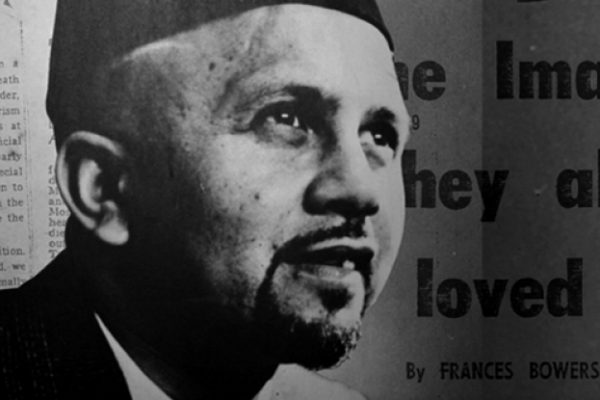“I ask myself: Why am I not enough without your approval? Why do I care if you see me?”
“I ask myself: Why am I not enough without your approval? Why do I care if you see me?”
When I was in 7th grade I tagged along with a friend who was babysitting — my friend was white and so was the girl we were babysitting. A game of make believe came to a grinding halt when the young white child we were watching told me that I would have to play the evil queen — when I asked why she replied — “because you’re black”. My friend looked shocked and embarrassed. She apologized afterwards as I tried to shrug off a stinging and familiar implication: namely that I was different and therefore there to serve the interests of the white girls I interacted with.
You might think that’s a dramatic interpretation of an innocent misunderstanding but the truth is this wasn’t my first encounter with a white girl who implied that my existence came second to her own.
My family moved when I was in elementary school and I switched schools in the same predominantly white town. I made friends with a group of white girls, one of whom took particular pleasure out of telling me what to do. I remember one day getting new sneakers, only to have her tell me to step in a puddle with them. Another time while playing softball, I said something she didn’t like and she fiercely threw the ball at my back. I stood there winded only to turn around and see her laughing. During lunch periods, she’d instruct me to clear the trays of all the girls at our table. I complied and they stayed quiet. Every time I did what she said, I felt ashamed but convinced that my ability to co-exist peacefully, my ability to belong, was predicated on doing what I was told.
The turning point was an afternoon ride home on the school bus. This same girl started touching my hair and instructed our other classmates to join her. I was surrounded by boys and girls parting my hair and tossing strands to the left and right as I sat there feeling numb, hair covering my eyes. When the bus pulled up to our shared bus stop, I ran home. She called after me and followed when I didn’t respond. I ran into my backyard and sat underneath the back porch crying. She approached me hesitantly as I sobbed unable to breathe let alone express what I was feeling. Eventually she grew frustrated and left. I went inside and finally confessed everything to my mother who long suspected that something was wrong at school — I often complained of stomach aches and we made frequent trips to the doctor. Later that afternoon, the girl and her own mother came and knocked on our front door. Her mother spoke aggressively to my own and told her that I had been giving her daughter trouble and she would report me to the school for doing so. I looked on in disbelief as my mother defended me. I did everything this girl told me to, and yet there I stood watching her rat me out for simply making her feel something other than awesome. I didn’t protect her from my pain and she was punishing me for it. Later, a shared teacher would snap at me in the middle of class snarling something along the lines of “I know what you’re up to.” I don’t remember what I was actually up to but I remember that the intensity and nature of her words shocked and scared me. I assumed that the girl’s mother had followed through on her promise. All of these events took place between the time I was in 3rd and 5th grade.
That friendship ended and faded away. While these memories are now over twenty years old, they were defining moments in my life. While I didn’t have the language to explain it at the time, they were some of my first interactions with white supremacy.
What I’m describing isn’t necessarily racism, and I’m not necessarily suggesting that the people I interacted with were racist. I’m describing privilege — the belief ingrained in white girls and white boys, from a young age, that they are the center of the human universe. They are the sun that the rest of us circle around. When we try to form our own constellations — they don’t know how to react. They throw asteroids at our stars and anxiously count our planets to make sure they still have more. This has been my experience even among white friends with obvious goodness and grace in their hearts. This has been my experience even among spiritual circles who preach love and connection from panels and events that feature exclusively white speakers.
For me, notions of girl power and sisterhood have always come with a caveat from white women: don’t make us too uncomfortable or we’ll revoke your invitation. I learned to adapt. I’d bite my tongue. I’d hide my shine. I’d downplay my good grades and the things that came naturally to me. I learned to repress what I wanted, what I needed, and what I *really* thought. I’ve been unlearning these lessons for the better part of the last decade.
In the process I’ve learned new skills like setting boundaries and prioritizing friendships that are based in mutual exchange, understanding, and respect. I’ve learned to say that my existence is not subordinate to yours — even if I only say it by withdrawing my attention. I don’t always get it right and have spent a significant amount of time simply cultivating a healthier relationship with myself. In doing so I’ve learned to recognize instances in which my presence was nothing more than tokenism — I’ve learned to know what it feels like to be in a room simply to further claims of diversity, rather than to be heard for what I have to say. I’ve learned to create space to listen: to myself and to the voices of people from whom my own privilege and position have inoculated me.
White supremacy has met me most directly as hurt feelings on the playground, and rejections that I couldn’t quite understand. As microaggressions, uncomfortable conversations and peaceful confrontations with authority. These events have taken their toll — but they also reveal my own privilege. As I work to recenter myself in my own experience, I do so with the knowledge that simply accounting for what I’ve seen would be a failure on my part. It is up to me to search for my blind spots. It is up to me to refuse power and position if it means denigrating or undermining marginalized groups. It is up to me to make it clear that I am not interested in a seat at the table if all of us don’t get to eat.
Donald Trump won the Presidency with the support of 53% of the white women who voted.
I’m not entirely surprised that this happened.
Over the last several years, I’ve spent some time in online spaces for women many specifically for feminist women. I learned to lurk because it quickly became clear that issues that pertained to women of color weren’t inherently women’s issues in the eyes of the white women who spoke most frequently and fervently. I learned to lurk because it quickly became clear that communities of women supporting women were premised on the unspoken assumption that the women of color in those groups would protect the comfort, and defer, to the white women present. I learned to lurk because I was afraid — I’m still learning to choose awkwardly confrontational over quietly uncomfortable when those are my only options.
I watched as conversations started by women of color got shut down by the notion that acknowledging race or racism was inherently hateful. Other times they were dismissed as “political,” or accused of race baiting, or ignored. Conversations regarding systemic racism or implicit bias, particularly when discussed in the context of the group’s dynamics, were frequently responded to with, “Don’t spread hatred,” “it’s all love,” or something equally patronizing. Yet other times aggressive transphobia and reckless rhetoric went completely unchecked by group moderators.
This is all happening in progressive, feminist, spaces. White feminist spaces.
White supremacy has no political affiliation, and if we are to truly meet this moment — then we must crack open the illusion that it does. Simply being in the company of people of color, does not sanitize your ability to be anti-black, counterproductive, or oppressive.
Additionally white supremacy will not be dismantled by people of color. We are merely bystanders of an insecurity that has nothing to do with us.
I believe that white supremacy is the attempt to love oneself through the subjugation of others.
Because of that I will not take responsibility for white supremacy — I did not earn it and therefore I cannot end it.
But white feminists can and in all likelihood it is they who must. It’s not for me to convince the white women who supported Trump of my humanity — but maybe white feminists can convince them of their own. White people need to contend with the pain and the fear that gave birth to white supremacy. I’m inviting those of you who are open and outraged to ask; why do so many of your people see our suffering as an indication of their success? If you are triggered then be triggered. But if you are outraged then help heal this by acknowledging it.
To me, one of the most haunting moments of this election cycle was watching a Black Lives Matter activist interrupt a Clinton fundraiser. The entire room and the candidate recoiled. Everyone was terrified of what this young girl had to say. They rushed to prevent her from speaking — to speak over her — to make her wrong. They rushed to punish her for not protecting them from her pain. Why?
We are always being asked to protect white people from our pain — particularly when it is pain caused by the words and actions of white people.
I ask myself: Why am I not enough without your approval? Why do I care if you see me? What happens once I stop giving you — the white women who I’ve regarded as gatekeepers to belonging and allies by name only — my power.
There is no more room for deference. This right here is my healing and the reclamation of my power. In increasingly coming to understand that you cannot touch my worth with your words or with your votes — I can move through the world with fierce love for myself, no matter what.
I recognize that I have been complicit in maintaining the comfortable ignorance of white supremacy. I sense that I did it for approval, and belonging, but mostly while searching for love. I’m choosing differently now — and holding the intention and desire to make space for all of us with the knowledge that silencing others in the name of love is not love.
Love is listening. Love is accepting, holding space, and maintaining your own boundaries. Love is caring for yourself. Love is choosing honesty and healing, compassion and empathy. Love is giving to yourself the acceptance you’ve been taught to seek from other people.
You may think it’s “political” or inconvenient to find yourself faced with a truth that you’ve never had to grapple with. You may even feel threatened by your inability to relate. Yet, white feminists in particular — can’t you relate?
The thing I don’t understand is that as women; don’t you know what it is to be unseen? Don’t you know what it is to get passed over, to feel unsafe, to be made to feel less than by media depictions and rape culture and mansplaining? Don’t you know what it is to feel dehumanized by our system and our culture — to be asked to hold the pain that others have caused you away from where they have to see it? Can’t you see that in the fight to end patriarchy healing separatism and confronting white supremacy within feminism is a necessary and instructive opportunity?
My eyes are open and I cannot and will not force them shut. My heart is broken but it has my allegiance. I can only promise to create with this pain and to do everything I can to help — to act and speak before being given permission.
That may make you uncomfortable, but it makes me free. Would you have me, have us, continue to be less free so that you could be more comfortable? For how much longer? A year? A decade? A life time?
When will you become comfortable enough with who you are to just let us be who we might be: unchained from the expectations and entitlements you’ve been taught to hold.
This post was originally featured here.





